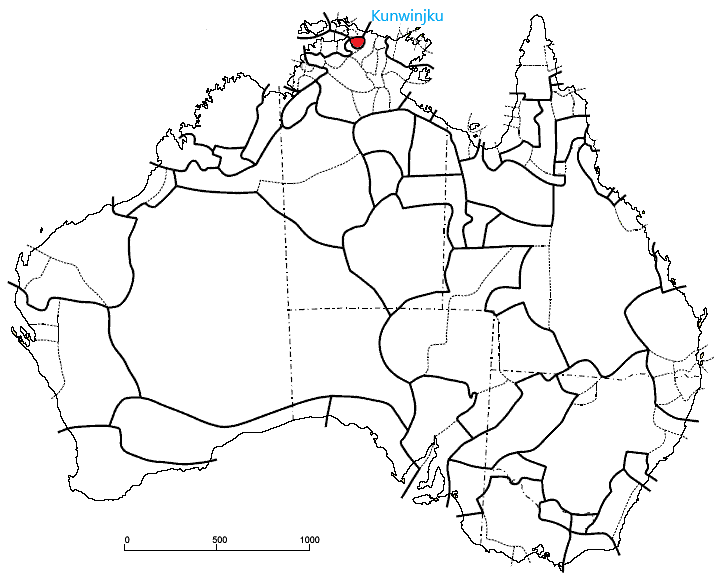|
Jon Charles Altman
Professor Jon Charles Altman (born 8 September 1954) is a social scientist with a disciplinary focus on anthropology and economics. He is an emeritus professor of the Australian National University currently affiliated to the Regulatory Institutions Network (RegNet), College of Asia and the Pacific, ANU. He was the founding director of the Centre for Aboriginal Economic Policy Research (CAEPR) at the Australian National University (1990 to 2010) and then a research professor there until 2014 when he retired. He is a Fellow of the Academy of the Social Sciences in Australia and an Honorary Fellow of the Royal Society of New Zealand. From 2008 to 2013 he was an Australian Research Council Australian Professorial Fellow. In late 2015 Altman moved to Melbourne to take up an appointment from 1 February 2016 as research professor at the Alfred Deakin Institute for Citizenship and Globalization at Deakin University. Early life Altman was born in Haifa, Israel and attended school in New ... [...More Info...] [...Related Items...] OR: [Wikipedia] [Google] [Baidu] |
Australian National University
The Australian National University (ANU) is a public university, public research university and member of the Group of Eight (Australian universities), Group of Eight, located in Canberra, the capital of Australia. Its main campus in Acton, Australian Capital Territory, Acton encompasses seven teaching and research colleges, in addition to several national academies and institutes. Established in 1946, ANU is the only university to have been created by the Parliament of Australia. It traces its origins to Canberra University College, which was established in 1929 and was integrated into ANU in 1960. ANU enrols 13,329 undergraduate and 11,021 postgraduate students and employs 4,517 staff. The university's endowment stood at A$1.8 billion as of 2018. ANU counts six List of Nobel laureates, Nobel laureates and 49 Rhodes Scholarship, Rhodes scholars among its List of Australian National University people, faculty and alumni. The university has educated the incumbent Governor-Gene ... [...More Info...] [...Related Items...] OR: [Wikipedia] [Google] [Baidu] |
Academy Of The Social Sciences In Australia
The Academy of the Social Sciences in Australia (ASSA) is an independent, non-governmental organisation devoted to the advancement of knowledge and research in the social sciences. It has its origins in the Social Science Research Council of Australia, founded in 1942. The Academy was established in 1971 to recognise and champion excellence in the social sciences and to provide evidence-based advice on a range of social policy issues. The Academy consists of an elected Fellowship of almost 700 distinguished Australian social science researchers and professionals who work together to: * Provide advice to governments on issues of national importance; * Promote understanding and awareness of the social sciences; and * Coordinate international cooperation and collaboration in the social sciences. Origins ASSA's functions were originally fulfilled through the Social Science Research Council of Australia, which was founded in 1942. A timeline of events leading up to ASSA's format ... [...More Info...] [...Related Items...] OR: [Wikipedia] [Google] [Baidu] |
Australian Research Council
The Australian Research Council (ARC) is the primary non-medical research funding agency of the Australian Government, distributing more than in grants each year. The Council was established by the ''Australian Research Council Act 2001'', and provides competitive Funding of science, research funding to academics and researchers at Australian universities. Most health and medical research in Australia is funded by the more specialised National Health and Medical Research Council (NHMRC), which operates under a separate budget. ARC does not directly fund researchers, but however allocates funds to individual schemes with specialised scopes, such as Discover (fundamental and empirical research) and Linkage (domestic and international collaborative projects). Most of these schemes fall under the National Competitive Grants Program (NCGP), whereby institutions must compete amongst each other for funding. ARC also administers the Excellence in Research for Australia, Excellence i ... [...More Info...] [...Related Items...] OR: [Wikipedia] [Google] [Baidu] |
University Of Auckland
The University of Auckland (; Māori: ''Waipapa Taumata Rau'') is a public research university based in Auckland, New Zealand. The institution was established in 1883 as a constituent college of the University of New Zealand. Initially located in a repurposed courthouse, the university has grown substantially over the years. As of 2024, it stands as the largest university in New Zealand by enrolment, teaching approximately 43,000 students across three major campuses in central Auckland. The university conducts teaching and learning within six faculties, two research institutes, and other institutes and centres. The City Campus, in the Auckland central business district, hosts the majority of students and faculties. History Origins The University of Auckland began as a constituent college of the University of New Zealand, founded on 23 May 1883 as ''Auckland University College''. Stewardship of the university during its establishment period was the responsibility of Joh ... [...More Info...] [...Related Items...] OR: [Wikipedia] [Google] [Baidu] |
Economic Anthropology
Economic anthropology is a field that attempts to explain human economic behavior in its widest historic, geographic and cultural scope. It is an amalgamation of economics and anthropology. It is practiced by anthropologists and has a complex relationship with the discipline of economics, of which it is highly critical. Its origins as a sub-field of anthropology began with work by the Polish founder of anthropology Bronislaw Malinowski and the French Marcel Mauss on the nature of reciprocity as an alternative to market exchange. In an earlier German context, Heinrich Schurtz has been cited as a “founder of economic anthropology" for his pioneering inquiries into money and exchange across different cultural settings. Post-World War II, economic anthropology was highly influenced by the work of economic historian Karl Polanyi. Polanyi drew on anthropological studies to argue that true market exchange was limited to a restricted number of western, industrial societies. Apply ... [...More Info...] [...Related Items...] OR: [Wikipedia] [Google] [Baidu] |
Kuninjku
The Bininj are an Aboriginal Australian people of Western Arnhem land in the Northern Territory. The sub-groups of Bininj are sometimes referred to by the various language dialects spoken in the region, that is, the group of dialects known as Bininj Kunwok; so the people may be named the Kunwinjku, Kuninjku, Kundjeyhmi (Gundjeihmi), Manyallaluk Mayali, Kundedjnjenghmi and Kune groups. Three languages are spoken among the Mirrar or Mirarr clan group, who are prominent in matters relating to looking after the traditional lands. The majority speak Kundjeyhmi, while others speak Gaagudju and others another language. History Aboriginal peoples have occupied the Kadadu area for about 65,000 years. The Macassans from Sulawesi had been in contact for trade purposes for centuries before the arrival of white civilization. They sailed down to exchange a variety of their goods for trepang, and the impact of their presence is evidenced by the retention in some Bininj Kunwok dialects ... [...More Info...] [...Related Items...] OR: [Wikipedia] [Google] [Baidu] |
Chris Gregory
Christopher A. Gregory is an Australian economic anthropologist. He is based at Australian National University (ANU) in Canberra, and has also taught at University of Manchester- where he was made Professor of Political and Economic Anthropology. He studied Economics at University of New South Wales and ANU before pursuing anthropology, following a period in Papua New Guinea. His main research has been in Papua New Guinea and Bastar District, central India, and he also co-authored a research methods manual for economic anthropology, 'Observing the Economy', with Jon Altman. Papua New Guinea research: Gifts and Commodities (1982) Gregory first grew interested in anthropology whilst resident in Port Moresby, Papua New Guinea from 1973 to 1975. Whilst teaching economics at University of Papua New Guinea, Gregory found orthodox economic theory lacking in explanatory power for the different kinds of economic action he observed as he travelled the country. He began to read ethnograph ... [...More Info...] [...Related Items...] OR: [Wikipedia] [Google] [Baidu] |
Political Ecology
Political ecology is the study of the relationships between political, economic and social factors with environmental issues and changes. Political ecology differs from apolitical ecological studies by politicizing environmental issues and phenomena. The academic discipline offers wide-ranging studies integrating ecological social sciences with political economy in topics such as degradation and marginalization, environmental conflict, conservation and control, and environmental identities and social movements. Origins In international perspective, the origins of political ecology can be traced through different traditions, including an Anglo-American tradition as well as the Latin American and French ''ecología política'' and ''écologie politique''. The English term "political ecology" was first coined by Frank Thone in an article published in 1935. It has been widely used since then in the context of human geography and human ecology, but with no systematic definition. Ant ... [...More Info...] [...Related Items...] OR: [Wikipedia] [Google] [Baidu] |
Northern Territory National Emergency Response
The Northern Territory National Emergency Response, also known as "The Intervention" or the Northern Territory Intervention, and sometimes the abbreviation "NTER" (for Northern Territory Emergency Response) was a package of measures enforced by legislation affecting Indigenous Australians in the Northern Territory (NT) of Australia, which lasted from 2007 until 2012. The measures included restrictions on the consumption of alcohol and pornography (including complete bans on both at some communities), changes to welfare payments, and changes to the delivery and management of education, employment and health services in the Territory. The Intervention was brought about by the enactment of the Northern Territory National Emergency Response Act 2007 and several associated new Acts of Parliament, along with a raft of changes to existing laws, by the federal government of Australia. The legislation was introduced and passed by the Howard government in August 2007. The justification ... [...More Info...] [...Related Items...] OR: [Wikipedia] [Google] [Baidu] |
2017 Australia Day Honours
The 2017 Australia Day Honours were announced on 26 January 2017 by the Governor General of Australia, Sir Peter Cosgrove.Order of Australia awards - summary , 26 January 2017, www.gg.gov.auMeritorious Service awards - summary 26 January 2017, www.gg.gov.au (This list includes: Public Service Medal; |
Australian Social Scientists
Australian(s) may refer to: Australia * Australia, a country * Australians, citizens of the Commonwealth of Australia ** European Australians ** Anglo-Celtic Australians, Australians descended principally from British colonists ** Aboriginal Australians, indigenous peoples of Australia as identified and defined within Australian law * Australia (continent) ** Indigenous Australians * Australian English, the dialect of the English language spoken in Australia * Australian Aboriginal languages * ''The Australian'', a newspaper * Australiana, things of Australian origins Other uses * Australian (horse), a racehorse * Australian, British Columbia, an unincorporated community in Canada See also * The Australian (other) * Australia (other) * * * Austrian (other) Austrian may refer to: * Austrians, someone from Austria or of Austrian descent ** Someone who is considered an Austrian citizen * Austrian German dialect * Something associated with the countr ... [...More Info...] [...Related Items...] OR: [Wikipedia] [Google] [Baidu] |
1954 Births
Events January * January 3 – The Italian broadcaster RAI officially begins transmitting. * January 7 – Georgetown–IBM experiment: The first public demonstration of a machine translation system is held in New York, at the head office of IBM. * January 10 – BOAC Flight 781, a de Havilland Comet jet plane, disintegrates in mid-air due to metal fatigue, and crashes in the Mediterranean near Elba; all 35 people on board are killed. * January 12 – 1954 Blons avalanches, Avalanches in Austria kill more than 200. * January 15 – Mau Mau rebellion, Mau Mau leader Waruhiu Itote is captured in Kenya. * January 17 – In Socialist Federal Republic of Yugoslavia, Yugoslavia, Milovan Đilas, one of the leading members of the League of Communists of Yugoslavia, is relieved of his duties. * January 20 – The US-based National Negro Network is established, with 46 member radio stations. * January 21 – The first nuclear-powered submarine, the , is ... [...More Info...] [...Related Items...] OR: [Wikipedia] [Google] [Baidu] |







